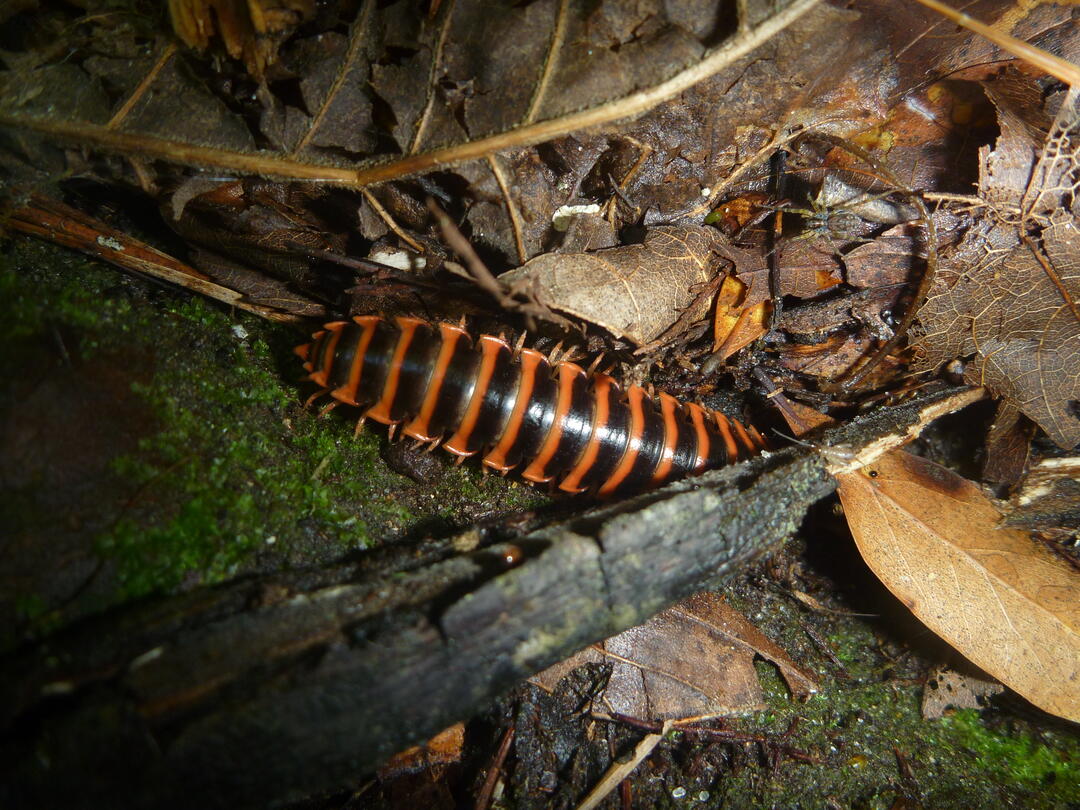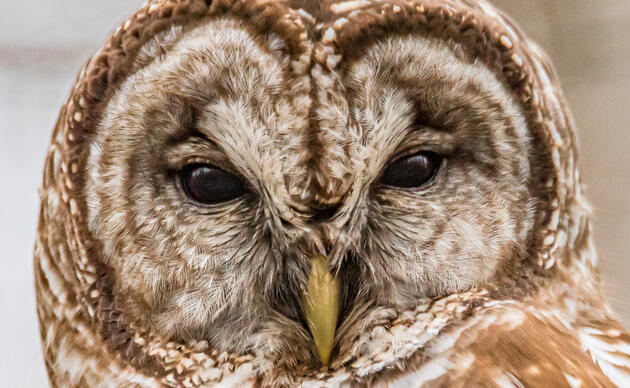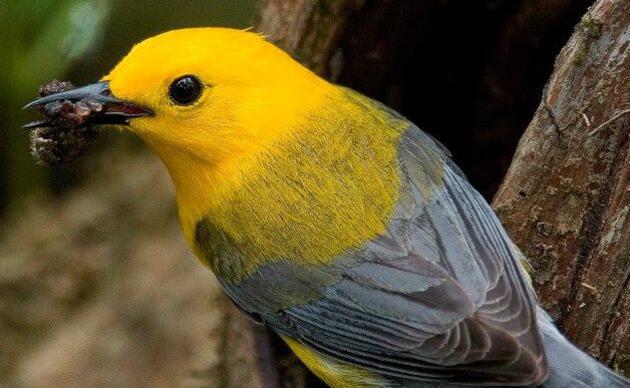Beidler Forest supports a variety of invertebrates beyond arachnids and insects, both terrestrial and aquatic. This is just a list of the more commonly seen species. Due to limited information, some of our local species (looking at you, shellfish), are especially nebulous to identify. Perhaps in time we'll have a more nuanced list.
Myriapods
- American Giant Millipede (Narceus americanus)
- Flat-backed Millipede (Sigmoria latior)
- Eastern Bark Centipede (Hemiscolopendra marginata)
Crustaceans
- Crayfish (Procambarus spp., which has 37 species in South Carolina, Procambarus clarkii is one likely candidate)
- Freshwater Scud (Probably Hyalella azteca)
- Freshwater Shrimp (Probably Palaemonetes paludosus)
- Waterlouse (Asellus aquaticus)
Mollusks
- White-lip Globe Snail (Mesodon thyroidus)
- Rosy Wolf Snail (Euglandina rosea)
- Carolina Mantleslug (Philomycus carolinianus)
- Freshwater Snails (There are 37 freshwater snail species in South Carolina, based on shapes alone Beidler Forest has at least 3, one of those being a Freshwater Limpet possibly of the tribe Ancylidae)
- Freshwater Mussel (Eastern Pondhorn (Uniomerus carolinianus), potentially Family Unionidae, which has 29 species in South Carolina, based on species found in the Edisto we may have these: Carolina Slabshell (Elliptio congaraea), and the Southern Rainbow (Villosa modioliformis))
Annelids
- Earthworm (Aporrectodea spp)
- Freshwater Leech (There are 20 freshwater leeches in South Carolina, fortunately the ones in Four Holes Swamp seem to prefer turtles over people, well, not so fortunate for the turtles at any rate. Glossiphonia swampina is a likely candidate)
How you can help, right now
Boardwalk Tickets
We're open Wednesdays thru Saturdays 9 AM to 5 PM and
Sundays 11 AM to 4 PM.
Beidler Membership
Click here to purchase a membership, which provides free admission for a year and other benefits. We offer both Individual and Family Memberships.
Donate to Beidler Forest
If you wish to support us, please consider donating. 100% of your donation goes back into Beidler Forest.





